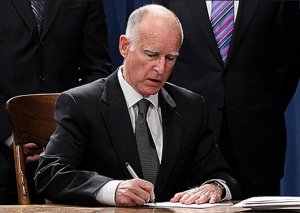Taking fleets to EV100: Ten companies have committed to making their fleets 100% electric vehicles at Climate Week NYC. Baidu, Deutsche Post DHL Group, Heathrow Airport, HP Inc., IKEA Group, LeasePlan, METRO AG, PG&E, Unilever, and Vattenfall this week  committed to meeting the “EV100” campaign. Member companies will be transitioning from gasoline and diesel vehicles to EVs and a charging infrastructure by 2030. These companies will set out timetables for rolling over their fleets. They’re convinced it will help drive EV adoption, reduce costs, and make electric cars more affordable in markets around the world. It follows two other initiatives led non-profit organization The Climate Group – RE100, which seeks to accelerate the adoption of 100% renewable energy targets; and EP100, which aims to increase the number of companies doubling their energy productivity.
committed to meeting the “EV100” campaign. Member companies will be transitioning from gasoline and diesel vehicles to EVs and a charging infrastructure by 2030. These companies will set out timetables for rolling over their fleets. They’re convinced it will help drive EV adoption, reduce costs, and make electric cars more affordable in markets around the world. It follows two other initiatives led non-profit organization The Climate Group – RE100, which seeks to accelerate the adoption of 100% renewable energy targets; and EP100, which aims to increase the number of companies doubling their energy productivity.
Study sees PEV growth continuing: A new study by Navigant Research sees North American sales of plug-in electric vehicles (PEVs) to continue their upward growth trend – 50% growth over 2016 sales. So far, PEV sales have grown tenfold since 2011; while the report doesn’t break out PEVs by vehicle type, the sales data probably includes both battery electric and plug-in hybrid electric vehicles. Growth is coming from California and other states adopting zero emission vehicle mandates, with some of them and other states in the U.S. offering incentive programs for purchasing them such as rebates. Positive demographics related to EV interest and adoption have also been helping sales, according to the study. Most buyers have been in urban areas with high levels of education and income, and driving patterns suitable for PEVs on the market. Navigant Research expects that demographic trend to decline, with buyers expanding to other demographic groups on a wider scale as PEVs become cheaper.
AB 134 adopted in California: California’s legislature passed AB 134, bringing about $900 million in funding to the state for clean transportation initiatives. It was signed by Gov. Jerry Brown over the weekend. Of that total, $140 million will fund the Clean Vehicle Rebate  Project specifically targeted to low-income applicants, and $100 million will go to light-duty equity pilot projects. About $180 million will go to the state’s Hybrid and Zero-Emission Truck and Bus Voucher Incentive Project (HVIP). That program offers incentive dollars for the purchase of electric and fuel cell vehicles and ultra low-NOx natural gas technologies. Another $250 million is being directed to the state’s air quality management and air pollution control districts through the Carl Moyer Memorial Air Quality Standards Attainment Program. That state program started in 1998 and is aimed at helping fleets and individuals switch over to clean trucks, school buses, transit buses, and other vehicles.
Project specifically targeted to low-income applicants, and $100 million will go to light-duty equity pilot projects. About $180 million will go to the state’s Hybrid and Zero-Emission Truck and Bus Voucher Incentive Project (HVIP). That program offers incentive dollars for the purchase of electric and fuel cell vehicles and ultra low-NOx natural gas technologies. Another $250 million is being directed to the state’s air quality management and air pollution control districts through the Carl Moyer Memorial Air Quality Standards Attainment Program. That state program started in 1998 and is aimed at helping fleets and individuals switch over to clean trucks, school buses, transit buses, and other vehicles.
